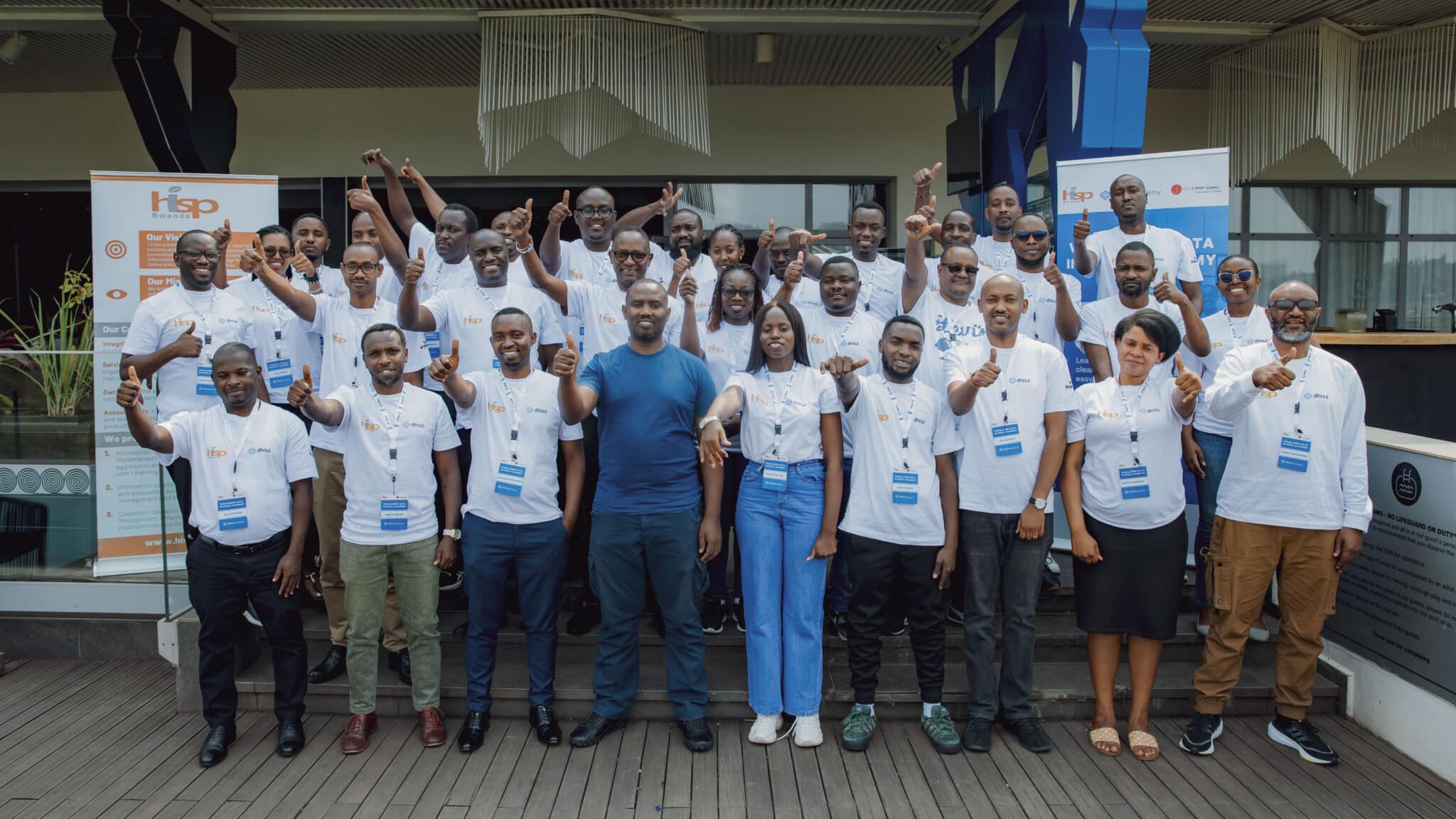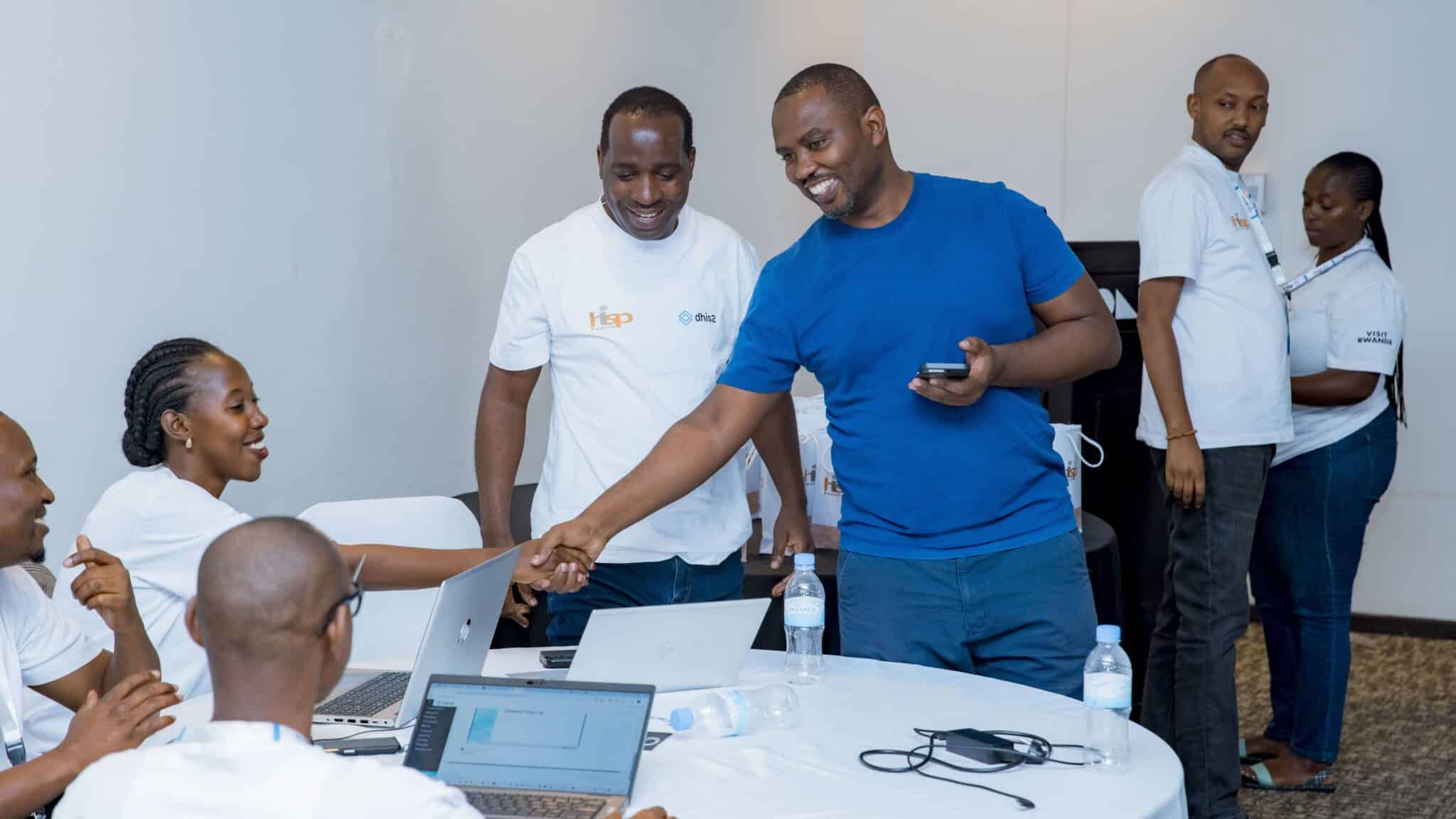The DHIS2 Annual Conference takes place from 15-18 June 2026! Learn more

End-to-end Supply Chain Management with DHIS2 and mSupply
Join our hands-on Academy on End-to-end Supply Chain Management with DHIS2 and mSupply to master tools for digitizing last-mile logistics. Learn how to assess and implement DHIS2 solutions integrating with central eLMIS or ERP systems, enabling efficient supply chain management at health facilities.
Format
In PersonLocation
Kigali, RwandaStart date
10 Nov 2025End date
14 Nov 2025Academy Overview
End-to-end Supply Chain Management with DHIS2 and mSupply explores the different aspects of utilizing DHIS2 as a last-mile logistics tool with a background of its existing and widespread use as an HMIS and how this can be leveraged for the logistics use case. This includes the aspects of an open source and country owned solution that ensures sustainability. This also allows for an integrated solution for last mile logistics, rather than being siloed and program specific.
The Academy will delve into the detailed aspects of configuration and implementation through a blend of theory and hands-on exercises online. The tools covered will include monthly stock reporting, transaction based stock management, temperature reporting, cold chain equipment (CCE) management, biomedical equipment management, healthcare product catalogue and integration aspects such as aligning workflows with a central eLMIS. Building on these tools, analytics tools, visualizations and dashboards will be presented to show support for reporting and decision making.

Participants Profile
The ideal audience for this Academy include:
- Health Information System (HIS) and Supply Chain Management (SCM) managers and system implementers exploring solutions for national and sub-national Logistics Management Information System solutions
- IT managers and implementers supporting HIS and SCM systems related to stock and equipment management
- DHIS2 and eLMIS implementers, administrators and users
Prerequisites: There are no prerequisites to attend this academy. However, it is recommended to have some DHIS2 experience and to complete the DHIS2 Fundamentals self-paced course series at the online academy: Introduction to DHIS2, Aggregate Data Entry and Validation Fundamentals, Aggregate Data Analysis Fundamentals, and Aggregate Customization Fundamentals. These courses are self-paced and available free of charge. For more information, visit academy.dhis2.org.
Learning Outcomes
In this Academy you will:
- Learn the scope where DHIS2 can be used to support LMIS use cases (stock aggregate, stock transactional, temperature, equipment life-cycle, GS1 data matrix, product catalogue, analytics) and how to assess its implementation
- Learn how to configure DHIS2 for monthly stock reporting, transactional stock management, equipment life cycle management, product catalogue, cold chain performance management and analytics
- Learn how to configure and interpret LMIS indicators, how those indicators are presented in various dashboards and how they can be used in planning and root-cause analysis
- Learn how to support the integration of DHIS2 logistics tools with a central eLMIS or ERP solution
Your Facilitation Team
The Academy will include global and local DHIS2 and Open mSupply experts who will present the theory and lead hands-on exercises that will allow participants to engage with the subject matter. Sessions will be interactive with plenty of opportunity to discuss challenges and share local experiences to promote networking and collaboration among DHIS2 implementers in the region.

George Mc Guire
George Mc Guire trained as a nurse, has 15 years of experience working as a Medical Logistician with MsF and the ICRC in 40 different countries and another 13 years at the head office in Geneva. He holds a MSc and PhD in supply chain management, has authored the “Handbook of Humanitarian Health Care Logistics” and his mission is (minimizing) demand distortion in public health demand networks. Since 2021 he is working full time at the HISP Centre at the University of Oslo as an LMIS technical advisor and contributing to the development and implementation of DHIS2 mobile applications for health care facilities (“last mile”) for stock and cold chain equipment management.

Breno Horsth
Breno Horsth studied International Studies at York University in Canada and Logistics Management at Bioforce Institute in France. He worked for over 10 years in the humanitarian field focusing on logistics management & coordination. He has supported numerous emergency health operations through the deployment of emergency field hospitals and worked on digitalization projects to improve preparedness and response procedures in the Norwegian Red Cross. Since 2021, he is working as LMIS Tech Lead at the HISP-Centre in University of Oslo, coordinating with multiple stakeholders to develop and promote the use of DHIS2 for last mile logistics management.

Augustin Dushime
Augustin Dushime, holds a BSc and MSc in Applied Statistics and has a background of general nursing and worked as a nurse for 7 years in the hospital. He has experience of 11 years in data management and analysis of big datasets using different statistical packages. He has used DHIS2 for 11 years and has been part of the quantification and forecasting team of TB commodities for 6 years. Dushime was a full time employee as Statistician in the Ministry of Health of Rwanda and Rwanda Biomedical Center for 10 years, and part time lecturer of Statistics and Biostatistics in JKUAT. He has conducted TB Epidemiological reviews in different countries of Africa to support the improvement of their TB Surveillance systems and development of their strategic plans. Dushime was a Data Processing assistant in the International Organization for Migration, a UN Agency, from April 2022 to March 2023, before joining the HISP- Rwanda as LMIS (Logistic Management Information System) Implementer Specialist in April 2023. He is currently supporting 10 countries of the region to implement DHIS2-LMIS tools in their routine surveillance systems.

Richard Moizeau
Originally from a corporate supply chain background, Richard has managed multiple eLMIS implementation projects across Africa with the mSupply Foundation. Currently working as the Foundation’s Partnerships manager.

Joseph Manzi
Joseph Manzi, is a DHIS2 system administrator working for HISP Rwanda since 2022. Prior to joining HISP, Joseph worked for several companies as a software engineer and server administrator. Joseph is leading the technical development of eLMIS solutions in different countries including the current implementation in Comoros. His motivation is to find solutions to complex problems facing humanity working together in teams and gaining more experience and knowledge from others.

Louisa Wong
Fees & Registration
The Academy fees are USD 800 and include:
- Training materials
- Lunch breaks
- Two coffee breaks per day
Venue & Accommodation
Location
Onomo Hotel Kigali is located at the heart of Kigali in the Land of a Thousand Hills. 20 minutes drive from Kigali International Airport, 5 minutes drive from the centre of Kigali and a renowned business district, shopping centres. Onomo Hotel Kigali is simple well organized and comfortable rooms with free Wi-Fi, Satellite TV Channel as well as room service. It also has other amenities like; swimming pool, gym, sauna and massage center to help you rejuvenate yourself.
Accommodation
We are happy to confirm that an exclusive discount rate of USD100 per night Please use the following details for your booking;
Email address: reservations.kigali@onomohotel.com
Onomo Hotel contact Person: +250783701403
While booking use the code “HISP” to access the discount rate

Travel Information
Airport and airlines
Rwanda’s largest airport is Kigali International Airport, which is the only gateway to the international community. The main airlines operating in Rwanda are Rwanda Air, Kenya Airways, Turkish Airline, Ethiopian Airline and Quatar Airways. Numerous international airlines serve Kigali International Airport from destinations around the world.
The hotel provides airport pick-up on arrival and departure and cabs are also available from the airport to various hotel destinations at an average rate of around $15.
Invitations
The academy organizers will provide invitation letters, if required, only to those who have registered for the academy. Please contact us at lmis2025@dhis2.org or mmukamisha@hisprwanda.org.
Immigration and visas
All countries obtain a visa on arrival at Kigali airport without prior application. A single-entry visa costs $50. Citizens of member countries of the following international organizations: African Union, Commonwealth, Francophonie are exempt from visa fees. For further details on immigration and visa fees, visit the official website of the
Directorate General of Immigration and Emigration.
Time zone
GMT+2
Climate
In November, Kigali’s weather is pleasantly warm with average daytime temperatures around 25°C (78°F) and cooler nights near 15°C (59°F), accompanied by intermittent rain showers typical of the short rainy season.
Currency
Rwandan Francs (RWF)
Banking and ATM
In Kigali, banking services and ATMs are available and found everywhere in center accepting Visa and MasterCard, though daily withdrawal limits and queues can occur. Many Services and goods in Kigali are mainly paid in Rwandan currency. When you arrive, please go to an exchange office to obtain the local currency. and consult this website for daily exchange rates.
Official language
Kinyarwanda, English, French and Swahili.
Health care
Healthcare in Kigali is generally accessible, provided through a network of both private and public healthcare facilities. These include hospitals, clinics, and health centers that offer a range of medical services. While many pharmacies have regular business hours, you can find some pharmacies operating 24/7, particularly in key areas of the city. Basic first-aid services are often available at hotels and lodges. However, It is highly recommended to have travel health insurance that can cover medical emergency or carrying any necessary personal medications.
Leisure and Attractions
There are plenty of places to visit while you’re in Kigali, Kigali Car-Free Zone is a popular hub that relies mainly on walking or cycling for transport and Kigali Monument. Nyandungu Urban Wetland Ecotourism Park, which allows people to travel sustainably to enjoy the natural areas and wildlife of the Nyandungu Valley.
Contact Us
Should you have additional questions please contact the DHIS2 Academy organizer at
- Contact in Rwanda: lmis2025@dhis2.org
- Mobile/Whatapps: +250791590407/ +250784506828
Terms & Conditions
Please review our Terms & Conditions, which apply to every person registering as a participant for a DHIS2 Academy.